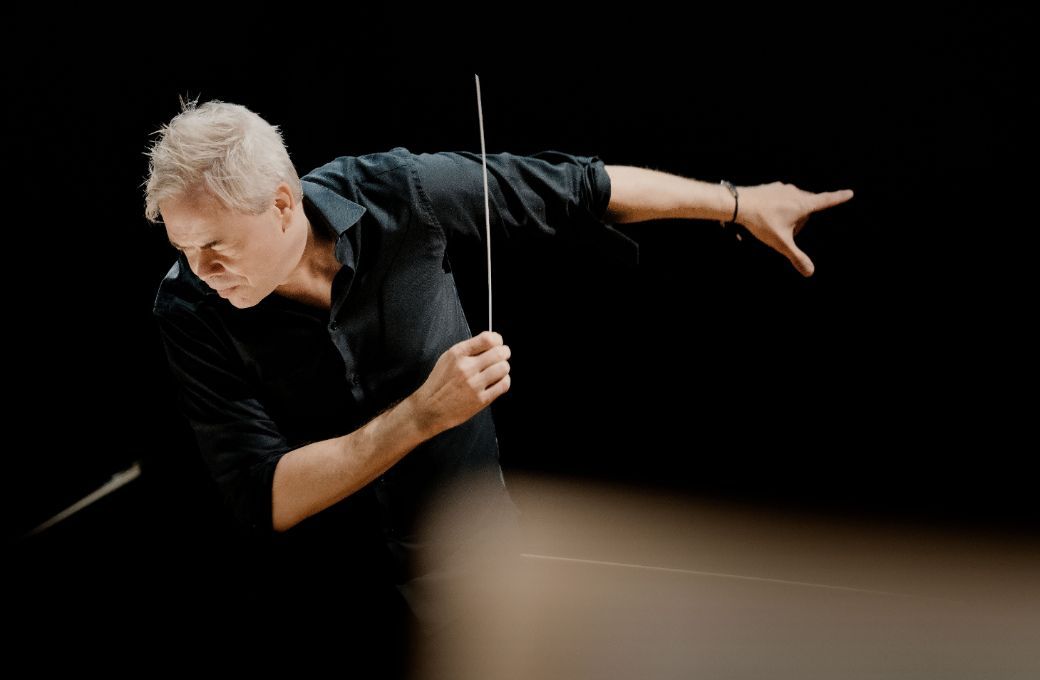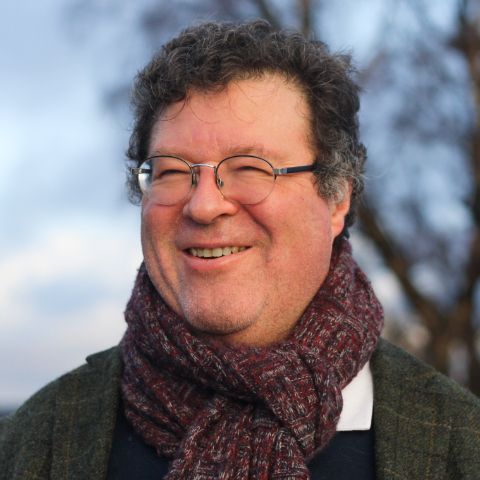“A new chapter” – that’s how the Singapore Symphony Orchestra is describing the appointment of its next Music Director, the Finnish conductor Hannu Lintu, and you can see why. A change of artistic leadership is a big moment for any orchestra. That all-important chemistry between podium and players has the potential to redefine every aspect of an orchestra’s life, from its choice of repertoire to its relationships with audience and supporters. It’s never, ever, just a question of waving the baton.

And for an orchestra like the SSO, which was founded in 1979, it’s especially significant. When Lintu takes up his position at the start of the 2026–27 season, he will be only the fourth music director in the SSO’s history, succeeding the hugely experienced Austrian maestro Hans Graf. As the orchestra’s reputation soars – with recent polls in BBC Music Magazine and Gramophone placing it in the premier league of international orchestras – the question of who leads the SSO into its second half-century has rarely been more significant.
Lintu is at pains to point out that it was anything but an impulsive decision. “I conducted them for the first time in 2017 and did three programmes with them. But then during the pandemic, nobody from Europe was able to go to Singapore, except Hans Graf, who really kept the orchestra alive and making music when other conductors were not able to come. But when we resumed discussions, I had already done my preliminary thinking. It has always been a tempting orchestra, because I find it so inspiring – the challenge of programming for such a wonderfully diverse audience. It was just a question of looking at my schedules and thinking about my career situation”.
He makes it sound so rational, but then, that’s what Lintu does. It’s one of the qualities that has taken him from Rauma in western Finland to Helsinki (where he studied with the legendary conducting guru Jorma Panula) and on to orchestral posts in Ireland, Sweden and Portugal (he has been principal conductor of the Gulbenkian Orchestra since 2023). And to the Finnish National Opera and Ballet, where he is currently chief conductor, and where I find him (via video call) in his office: “I have a performance of Elektra tonight”. Gulp. “Yes, exactly!”
That’s the thing, though, with Lintu. That appetite for hard work and air of calm control gives way, in performance, to musicianship of thrilling authority and emotional commitment. The last time I saw him conduct live was with the London Philharmonic in March 2025, when he stepped in at short notice to conduct Tan Dun’s Water Concerto, Lutosławski’s Third Symphony and the angular, rarely-heard First Symphony by Arvo Pärt. The results were explosive, and at the back of it all hovered a question. Did Lintu already have these rarities in his repertoire? Or – even more astonishing – did he actually learn, rehearse and perform three stupendously complex postwar scores in three days flat? It simply has to be asked.
“The LPO management came to me on Wednesday morning, and the concert was on Saturday” he says. “And: well, the thing is, I have recorded Lutosławski 3 and I have conducted it a lot. I’ve also done a couple of Pärt symphonies – not this one, but I basically knew what it was about, and I was sure that I could learn it in 24 hours. Tan Dun, again: I didn’t know this specific piece, but I know his music and his language. Maybe I’m a masochist or something, but I actually enjoy situations like that!” He laughs – but still?
“It’s part of our training. Our professor, Jorma Panula – who is the Pope of conducting, as I’m sure you know – always said that a conductor has to be able to learn anything in 24 hours. OK, perhaps not Elektra, but basically everything in the orchestral repertoire should be do-able in 24 hours. So this is something I want to test once in a while – to see whether I can still do it or not. And of course, in situations like that, you get lots of support from the orchestra as well.”
It’s starting to make sense. There’s nothing that orchestral players respect more than a conductor who knows their craft inside out, and who also appreciates exactly what their musicians can give. An exciting prospect for the Singapore Symphony Orchestra, then, and it’s fair to say that the feeling is mutual. Prior to taking up his post in the summer of 2026 Lintu is working twice with the SSO in the 2025–26 season, and he’s eager to see how they respond to programmes that include Shostakovich’s Leningrad symphony, Mahler’s Fourth Symphony and (more surprisingly) Haydn’s Nelson Mass – a chance to get to know the SSO’s excellent Symphony Chorus and Youth Choir. Lintu explains:
“That week in the SSO calendar was already designated a choral week, and since Haydn is my secret love, I suggested the Nelson Mass. Again, it comes from Professor Panula. Haydn has something so inspiring and so human: this late Mass is so virtuosically composed and full of inspiration and great orchestral and choral writing. And of course, Haydn is always a special challenge, precisely because he is not Mahler or Verdi. The Viennese classical repertoire always tells you a lot about musicians; about their flexibility. We have already some plans for the choir in 2026–27, but before I can plan any further, I need to know how they sing, so this is a great opportunity to do that.”
As for the Shostakovich – well, ask any orchestra manager: that means extra players, and lots of them. How feasible is that in Singapore? “This was exactly what I asked when we were having the preliminary discussions” he says. “They don’t have any limitations: I mean, they’re always playing Mahler symphonies and the big Strauss symphonic poems. The answer was that there are no limits – and we are going to do some big things! I don’t pretend that it’s cheap, but on the other hand, that is not my problem.”
So that takes us up to the start of Lintu’s tenure in 2026. Then the adventure really begins. He isn’t able to give much away yet, but the basic direction of travel is clear. “In the beginning we are going to concentrate on composers like Beethoven, Schumann, Brahms and Richard Strauss, because I have found out that the best way to build a relationship with an orchestra is with the standard repertoire – things which orchestras know well, and which conductors hopefully know well – so you can start communicating and making music immediately. You can start building up a relationship based on this music much better than, let’s say, with Alban Berg or Magnus Lindberg, who are composers I love.”
“So this is going to be our plan for the first one and a half seasons at least – and by then I will have much more information. One of my main projects is to build some kind of a contemporary music profile for the orchestra, because that is what they don't have at the moment. My impression so far is that the players are very disciplined and professional; they play with extraordinary skill. But I think what they need – and what will happen – is that I will work with their sound. I want people to hear a recording and immediately say ‘Oh, this is the Singapore Symphony Orchestra’.”
In other words, a musical voice for one of the most genuinely multicultural cities on Earth. That, it turns out, is what Lintu relishes most of all:
“The programming is much more difficult than in cities like Helsinki or London or Paris, which are more culturally unified. Of course there are tens of thousands of Europeans and Americans working in Singapore, and then there are the Chinese and Malay and Indian communities. And they all have their own tastes and traditions. That’s what I love about Singapore, it’s a real melting pot in so many different ways. We’ve also got a new artistic planner who’s starting alongside me. He’s local, he’s young, he’s very knowledgeable – it’s great to have someone like that to work with.”
So the players are right, the management is right and the place is right. As the SSO approaches its half-century, Lintu’s task is to prove that the moment is right, and he’s quietly confident. “There’s a lot of ambition in the city and in the orchestra, and I think it has the potential to become something very interesting – and very inspiring. The Singapore Symphony Orchestra is already a very important orchestra in its region, but I want it to become one of the most important orchestras in Asia, altogether. And even the best.”
Hannu Lintu conducts the Singapore Symphony Orchestra in Mahler’s Fourth Symphony and Haydn’s Nelson Mass on 14th–15th November.
Lintu returns to conduct Shostakovich’s Seventh Symphony and Violin Concerto no. 1 with Leonidas Kavakos on 9th–10th April 2026.
See upcoming events from the Singapore Symphony Orchestra.
This article was sponsored by Singapore Symphony Orchestra.


